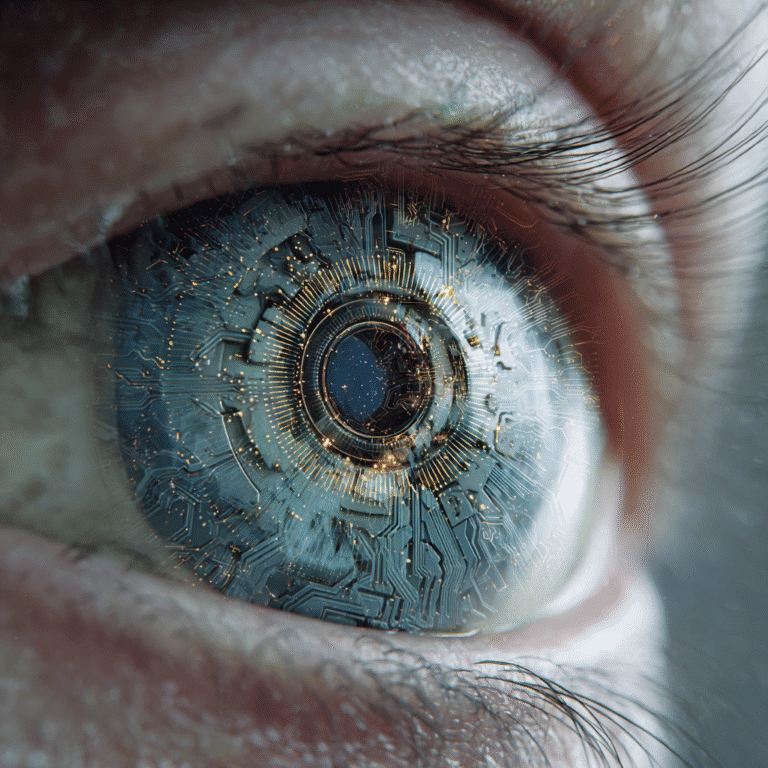How Screen Time Is Changing Our Eyes – and What You Can Do About It
Whether you work on a computer, scroll on your phone, or unwind with streaming shows, your eyes are working harder than ever before. The average American now spends over seven hours a day in front of digital screens — a lifestyle shift that’s dramatically changing how our eyes feel and function. At Belmont Eye Center,…
Read MoreThe Best Vitamins and Supplements for Eye Health
Your eyes are one of the most important parts of your body and deserve protection—especially as you age and become more prone to certain eye conditions. There are several ways to preserve your vision and overall eye health, including ensuring you get the right vitamins and minerals that support healthy eyesight. Below, we highlight some…
Read MoreBreakthrough Implant Helps Restore Vision Lost to Advanced Macular Degeneration
Breakthrough Implant Helps Restore Vision Lost to Advanced Macular Degeneration Published October 20, 2025 Source: The New England Journal of Medicine Authors: Frank G. Holz, M.D., Yannick Le Mer, M.D., Mahiul M.K. Muqit, M.D., Ph.D., Lars-Olof Hattenbach, M.D., Ph.D., Andrea Cusumano, M.D., Ph.D., Salvatore Grisanti, M.D., Laurent Kodjikian, M.D., Ph.D., and José-Alain Sahel, M.D., et…
Read MoreEye-Opening Study Links Glaucoma and Poor Sleep | Belmont Eye Center NYC
New research has revealed a surprising connection between how well you sleep and the health of your eyes. A recent study of more than 6,700 Americans over age 40 suggests that poor sleep patterns may increase the risk of glaucoma — a leading cause of irreversible blindness worldwide. The Link Between Glaucoma and Sleep Problems…
Read MoreOver 50? 6 Lifestyle Changes That Can Help Protect Your Eyes and Prevent Vision Loss
Eye News & Education,LASIK Education & News
As we age, our eyesight naturally changes — but significant vision loss is not inevitable. In fact, many of the most common causes of blindness in adults over 50, such as glaucoma and macular degeneration, can often be delayed or even prevented with simple lifestyle changes. At Belmont Eye Center, we believe that protecting your…
Read MoreEye Irritation 101: How to Safely Handle a Foreign Object in Your Eye
Belmont Eye Center News,Eye News & Education,LASIK Education & News
That sharp, gritty feeling in your eye can stop you in your tracks. Whether it’s dust, an eyelash, or a speck from city air, getting something stuck in your eye can be both painful and alarming. Your first instinct might be to rub your eye—but that’s often the worst thing you can do. Don’t Rub—Blink…
Read MoreSpend All Day at a Computer? Here’s How to Protect Your Eyes from Digital Eye Strain
If you live or work in New York City, chances are your days involve long hours in front of a computer, phone, or tablet. Whether you’re typing away in a Midtown office, working remotely from a Brooklyn coffee shop, or scrolling the subway ride home, screens are a big part of daily life. But with…
Read MoreBack-to-School Vision Tips: Protecting Kids’ Eyes in a Digital World
As children head back to school, it’s not just new backpacks and fresh notebooks that matter—clear vision plays a critical role in academic success. Yet many students return to the classroom each fall only to discover that their eyesight has changed since the previous year. Recent studies show that nearsightedness (myopia) is on the rise…
Read MoreSimple Tips to Reduce Digital Eye Strain
In today’s world, it can feel impossible to escape screens. Between computers at work, phones in our hands, and TVs at home, digital devices are part of nearly every aspect of modern life. But while technology brings convenience, it can also take a toll on your eyes. One of the most common complaints we hear…
Read MorePrevention and Eye Health Tips: Protecting Your Vision as You Age
Our eyes change naturally with age, but that doesn’t mean vision loss is inevitable. According to Dr. Sandra Belmont, “while not all age-related vision problems can be prevented, many can be managed or their progression slowed with proper care.” By adopting healthy habits and staying proactive, you can protect your eyesight and enjoy clear vision…
Read More









